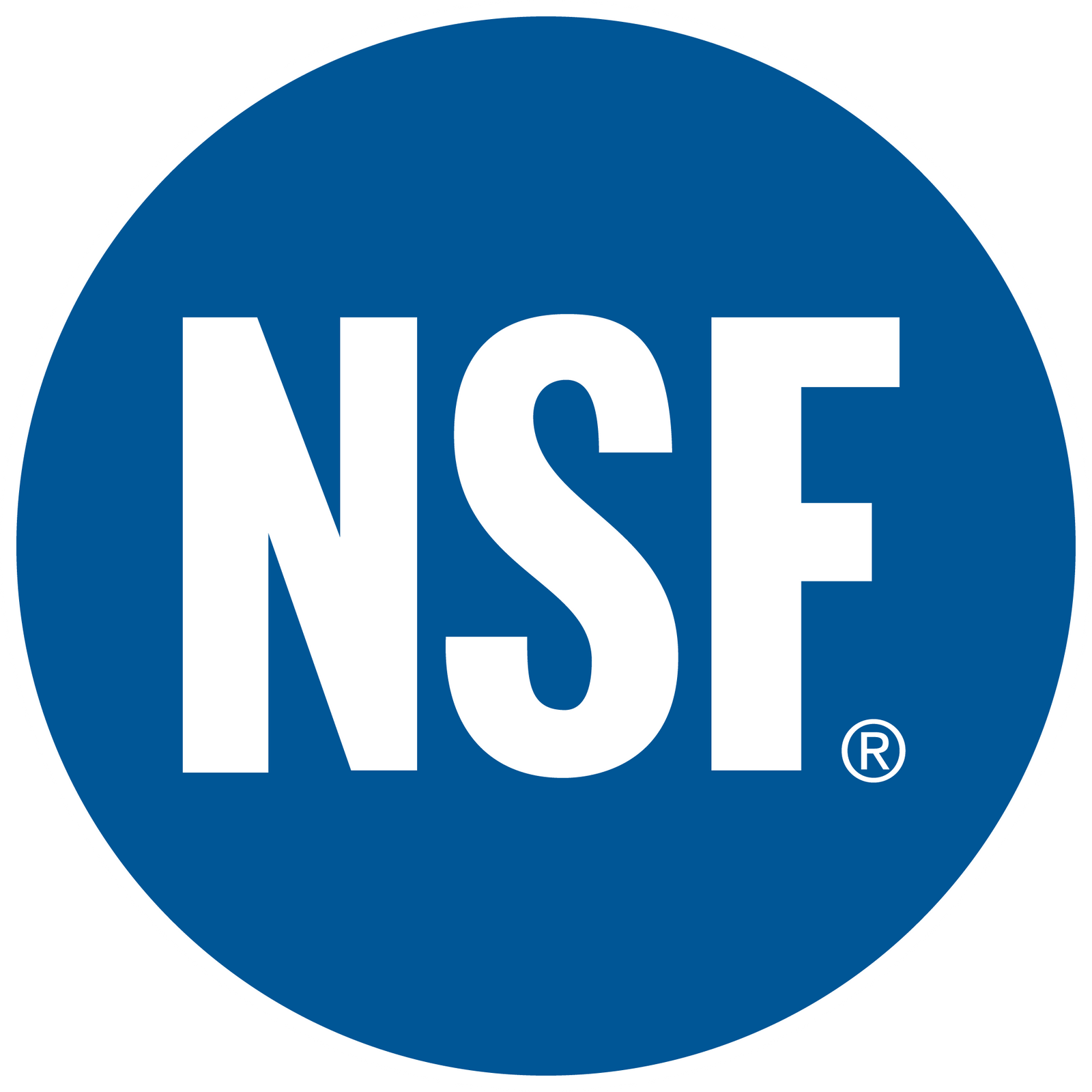Elkay water filters help reduce contaminants for cleaner, healthier water. How do we achieve this? Radial flow-thru design and ATS-treated activated carbon effectively treat incoming water, while the spun polypropylene prefilter mesh prevents large, coarse sediment and particles from entering and clogging filter media.
Why we use NSF
Water is vital to humans. Good public health goes hand in hand with safe drinking water for consumption, which is what makes the NSF/ANSI 53 Drinking Water Treatment Units – Health Effects standard important. Filtered water products are referenced in city and state health codes and adopted into law. Codes state the standards that apply to each type of product, which drives Elkay to certify products to those standards to ensure they are safe. Most countries have their own, unique certifications and each certification needs regular maintenance. Certifications help our products stand out and we actively contribute toward the advancement of the industry.
The National Sanitation Foundation (NSF) has strict standards for public health protection. Choosing a product certified by NSF lets the consumer know that the company complies with strict standards and procedures imposed by NSF. Before earning the NSF certification, each aspect of a product’s development is thoroughly evaluated such as product testing, material analysis, and unannounced plant inspections. NSF certification is not just a one-time event but requires ongoing maintenance such as regular on-site inspections of manufacturing facilities and regular re-testing of products to ensure they still meet the same high standards required to maintain certification over time. If for any reason, a product fails to meet one or more certification criteria, NSF will take enforcement actions: product recall, public notification, or de-certification. Products that are NSF certified/listed and display the NSF certification mark show they have been tested to today’s most respected independent product testing organizations.
NSF
NSF was founded in 1944. The first standards were created using a transparent, consensus-based process for the sanitation of soda fountains and luncheonette equipment in the early 1950s. This became the process for which NSF would develop all their future public health and safety standards.
NSF’s goal is to develop uniform, consensus-based national standards. This is achieved by bringing together regulators, industry, consumers, and public health experts. NSF’s scientists, engineers, and public health professionals test to these standards.
NSF has more than 75 currently active public health and safety American National Standards and 95 published protocols for appliances, food equipment, drinking water filters, and other various products. Products that meet these standards bear the NSF marking.
Why each NSF/ANSI 53 standard is important
This standard establishes the minimum requirements for materials, design and construction, and performance of drinking water treatment systems designed to reduce specific health-related contaminants in public or private water supplies. Both point-of-use (POU) and point-of-entry (POE) systems reduce substances considered established or potential health hazards (chemical or particulate). This includes lead, chromium, radon, asbestos, Cryptosporidium, volatile organic compounds, inorganic volatile chemicals, and various other contaminants. NSF/ANSI 53 applies to systems that can be used to treat all or part of the portable water at the inlet to a residential facility or a bottled water production facility, and the standard includes the materials and components of these systems.
Our WaterSentry Plus filters reduce an average of over 99% of lead at concentrations up to 150 ppb (.150 mg/l) for up to 3,000 gallons. When drinking water products have NSF/ANSI 53 certification, this provides consumers the confidence and peace of mind knowing the water they are drinking is safe for consumption.
For further questions regarding certification for Elkay and Halsey Taylor products, please contact our customer service at support@bottlefillingstations.com
NSF/ANSI 53 Certification
